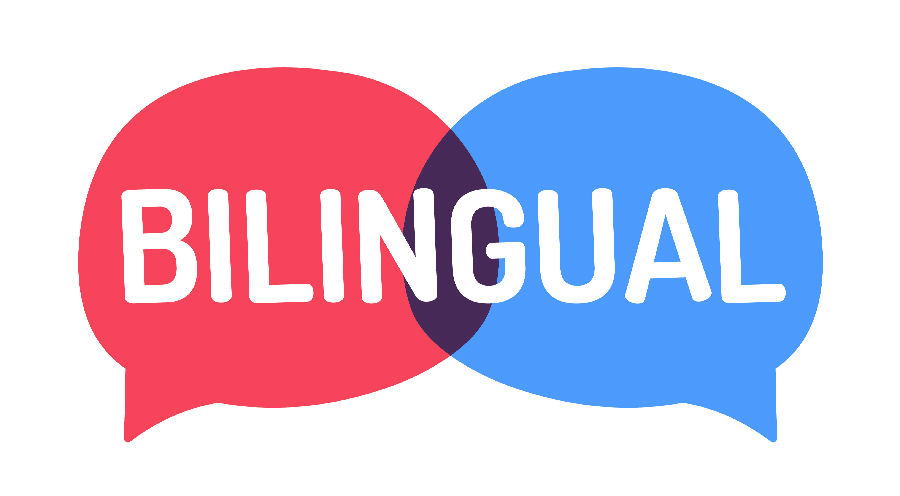來源于《圖書與藝術》版塊
Johnson
約翰遜語言專欄
Double-take
掌握雙語
It helps to speak more than one language—even if the benefits are unquantifiable
多掌握一門以上的語言是有幫助的——即使益處無法量化
Just a few generations ago, speaking two languages was supposed to be bad for you. Tests in America found that bilingual people had lower IQS, which seemed evidence enough. Later it became clear that those surveys were really measuring the material poverty of immigrants; members of such families were more likely to be undernourished and understimulated, not to mention the obvious fact that they often sat the tests in a language that was not their best.
就在幾代人以前,多掌握一門外語還被認為是無益的。在美國,經(jīng)測試發(fā)現(xiàn),掌握兩種語言的人智商較低,這似乎是有力的證據(jù)。后來才漸漸弄清楚這些調(diào)查實際旨在衡量移民的物質(zhì)貧困;移民家庭的成員更有可能營養(yǎng)不良和缺乏鼓勵,更不用說他們經(jīng)常用自己不擅長的語言參加考試這一明顯的事實。

How things have changed. In the past decade it has become almost common knowledge that bilingualism is good for you—witness articles such “Why Bilinguals are Smarter” and “The Amazing Benefits of Being Bilingual” by the New York Times and the BBC. Stacks of research papers have suggested that two-tongued people enjoy a variety of nonlinguistic advantages. Most notably, they have shown that bilinguals get dementia on average four years later than monolinguals, and that they have an edge in “executive control”—a basket of abilities that aid people doing complex tasks, including focusing attention, ignoring irrelevant information and updating working memory.
事情是如何變化的。在過去十年里,多掌握一門語言有益處,這已經(jīng)是一種共識,比如《紐約時報》和英國廣播公司的《為什么雙語者更聰明》和《雙語的驚人好處》等文章。大量的研究論文表明,會說兩種語言的人享有各種非語言優(yōu)勢。最值得注意的是,他們發(fā)現(xiàn)雙語者患上癡呆癥的平均時間比單語者晚四年,他們在“執(zhí)行控制”方面有優(yōu)勢,“執(zhí)行控制”是一組幫助人們完成復雜任務的能力,包括集中注意力、忽略無關信息和更新工作記憶。
Why bilingualism would enhance these capabilities is unclear. Researchers hypothesise that having two languages means suppressing one when speaking the other, a kind of constant mental exercise that makes the brain healthier. This in particular is thought to be behind the finding of a later onset of dementia.
雙語可以增強這些能力的原因還尚未可知。研究人員提出假設,掌握兩種語言意味著在說另一種語言時壓制其中一種語言,這是一種持續(xù)的腦力鍛煉,能讓大腦更健康。這尤其被認為是晚發(fā)性癡呆的背后原因。
But as intellectual pendulums do, this one has begun to swing again, against the “bilingual advantage”. Though many papers have identified such a bonus, many more have tried and failed to replicate those studies. Roberto Filippi of University College London and his col leagues have spent five years testing more than 600 people, from seven to 80 years old and including some who oscillate between two languages. They could find no statistically significant advantage in any age cohort.
但就像智力上的搖擺不定一樣,這個論證“雙語優(yōu)勢”的原因又開始搖擺不定。倫敦大學學院的羅伯特•菲利皮和其同事們用5年時間測試了600多名年齡在7歲到80歲之間的人,其中包括一些在兩種語言之間轉(zhuǎn)換使用的人。他們沒有發(fā)現(xiàn)任何年齡組在統(tǒng)計學上有顯著優(yōu)勢。
譯文由可可原創(chuàng),僅供學習交流使用,未經(jīng)許可請勿轉(zhuǎn)載。












